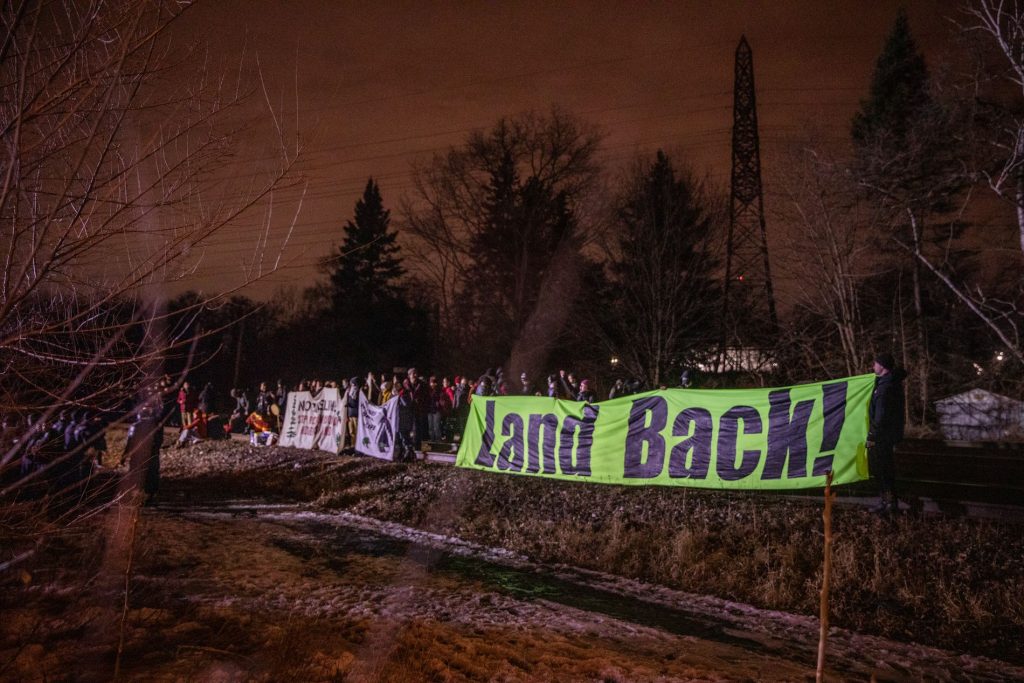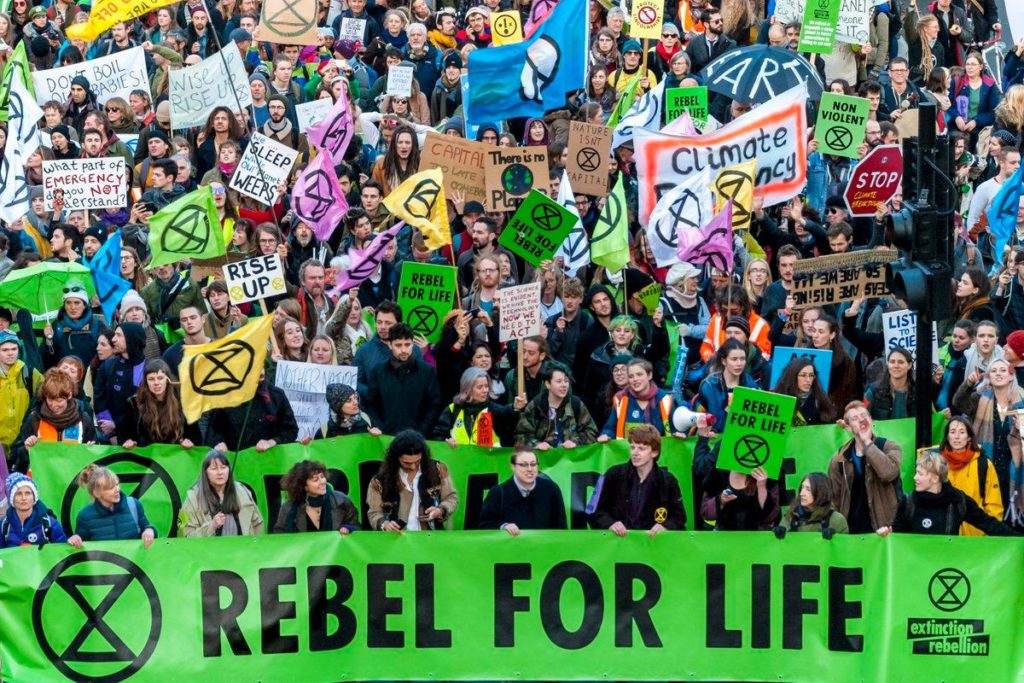
Once a month, we put together a list of stories we’ve been reading: news you might’ve missed or crucial conversations going on around the web. We focus on environmental justice, radical municipalism, new politics, political theory, and resources for action and education.
We try to include articles that have been published recently but will last, that are relatively light and inspiring, and are from corners of the web that don’t always get the light of day. This will also be a space to keep you up to date with news about what’s happening at Uneven Earth.
Don’t tune out yet: the year 2020 is still full of great, much-needed analysis. This month, we are featuring work that is deeply challenging: against the idea that providing good jobs and protecting the environment are in opposition to each other; highlighting the moral depravity of for-profit, industrial agriculture; and on the revolutionary demand of giving Indigenous land back. Aside from this, there were several essential analyses of current anti-racist movements, and anti-black racist movements in particular, pieces on the power of Indigenous wisdom, and guides on organizing with tenants.
A small note that the articles linked in this newsletter do not represent the views of Uneven Earth. When reading, please keep in mind that we don’t have capacity to do further research on the authors or publishers!
Uneven Earth updates
Work | Work is drudgery for a lot of people, but it can be different and meaningful, if radically reorganised
Political ecology | Like a toolbox to unpack and understand the complexity of the socio-ecological crises we live in, political ecology is dedicated to a more just and inclusive world
Development | For development to truly deliver on its promise—the betterment of life for all—it must engage a multidimensional understanding of poverty
Top 5 articles to read
The industrial exploitation of pigs
Exiting the false “jobs versus environment” dilemma
A history of true civilisation is not one of monuments
Traditional skills help people on the tourism-deprived Pacific Islands survive the pandemic
News you might’ve missed
Denmark to cull up to 17 million mink amid coronavirus fears
1% of farms operate 70% of world’s farmland
Why are Kashmiri Muslim nomads being evicted?
Africa′s debt crisis grows amid COVID-19 pandemic
Advertisements harm the planet, researchers say
The Maya built the Western Hemisphere’s first water filtration system
Where we’re at: analysis
Hoping for a return to normal after Trump? That’s the last thing we need
Joe Biden’s garbage career: A timeline, and Biden’s corporate cabinet: A breakdown
No easy answers: a response to Alex Heffron and Kai Heron
Haemorrhaging Zambia: Prequel to the current debt crisis
Europe’s Green Deal offshores environmental damage to other nations
Andreas Malm’s corona, climate, chronic emergency
Just think about it…
It is time to revolutionise how we talk about the weather
Ecologically and culturally rich deserts, swamps and grasslands must not be labelled ‘wastelands’
Mixed farming beats intensive agriculture methods
How hundreds of small ‘Gardens of Eden’ guard against total deforestation in Ethiopia
Lithuania’s trade-in program is swapping people’s old cars for new e-bikes
Black Lives Matter
Cars, riots & Black liberation
Life, war, and politics: After the George Floyd rebellion
Indigenous struggles: #LandBack
What is the Indigenous landback movement — and can it help the climate?
Land Back: The matrilineal descent of modern Indigenous land reclamation
‘Land Back’ is more than a slogan for a resurgent Indigenous movement
Degrowth
Sufficiency: the missing ingredient for sustainable digitalisation
Outgrowing growth: why quality of life, not GDP, should be our measure of success
Escaping the growth and jobs treadmill
New politics
Winning back the Internet by building our own
Why the Green New Deal needs mobility justice
What is libertarian socialism?
An economy that works for everyone
A caring economy: What would it take? The November-December 2020 New Internationalist issue asks: With the world in the midst of a deepening crisis of care, accelerated by Covid-19, what would it mean to have an economy that valued them and the people they care for?
Indigenous languages as cures of the Earth. This article is part of the #CuraDaTerra essay series, focused on Indigenous perspectives and alternatives to industrial capitalism.
Interrelations. Julian Brave NoiseCat has called eight expert witnesses to a tribunal to examine capitalist and colonial relationships to the land and one other. These testimonies endeavor to understand what has gone awry in our human societies, as well as to inquire into what other forms of knowledge, values, and interrelation might form the basis of a more just and reciprocal relationship between land and people.
Cities and radical municipalism
Barcelona launches 10-year plan to reclaim city streets from cars
Ontario is mass evicting tenants, in as little as 60 seconds
This is what energy transition looks like: L’Amassada eviction one year later
L.A. tenants union rejects legislative compromises, affirms dual power
Barricades, boulders, and how LA’s public space became a battleground for the commons
Democracy is in decline. Here’s how we can revive it
‘Covid created an opportunity’: Lisbon to turn tourist flats into homes
New Foundational Infrastructures: economic policies for a radical municipalism?
Finland ends homelessness and provides shelter for all in need
Food politics
Joel Salatin’s unsustainable myth
When beef testing is surveillance, sacred cows are tools of the state
Incubated futures
Resources
A copy editor’s education in Indigenous style
How to organize your building
Want to receive this as a newsletter in your inbox? Subscribe here.
